Click here if you don’t see subscription options

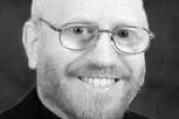

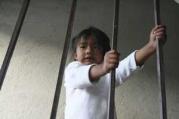

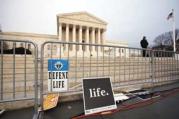

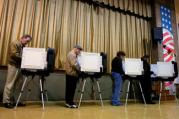
When the U.S. Conference of Catholic Bishops published Forming Consciences for Faithful Citizenshipin the fall of 2007, their intention was to give moral guidance to Catholics who would be voting in the 2008 elections. The subject of abortion had a special claim upon the formation of a political conscience. While the document allowed Catholics to vote for a candidate who supported reproductive rights, it could be done only if the intention was not to support such rights and if there were truly grave moral reasons for doing so. Since a majority of the Catholics who participated in the presidential election did vote for a pro-choice candidate, some have expressed the opinion that Faithful Citizenship is no longer relevant to our public life. That view is mistaken. The bishops have made it clear that the document will continue to guide their encounters with politicians. It stands to reason that the laity, whether office holders or ordinary citizens, have similar obligations. Indeed, in Faithful Citizenship, the Bishops recognized that participation in the political process “...goes well beyond casting a vote in a particular election.”
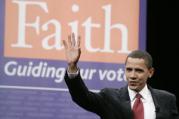
The presidential election of 2008 was no different than many other elections in that a significant amount of rhetoric was employed by all involved, candidates and their surrogates alike. However, this election was also characterized by a notable amount of religious rhetoric, particularly by many in the Catholic hierarchy and others associated with them.
The 2008 election rehashed much of the debate surrounding abortion and Catholic politicians that was so prevalent in 2004, this time with a particular focus on the 2007 USCCB document Faithful Citizenship. I will note two themes.
The first concerns the bishops’ actions prior to the election. Paragraph 36 of Faithful Citizenship states: “When all candidates hold a position in favor of an intrinsic evil, the conscientious voter faces a dilemma. The voter may decide to take the extraordinary step of not voting for any candidate or, after careful deliberation, may decide to vote for the candidate deemed less likely to advance such a morally flawed position and more likely to pursue other authentic human goods.” It is this paragraph and the apparent opening that it provided for including other social justice issues in deciding one’s vote that, in my judgment, prompted sixty bishops to make the case that the single issue of abortion should in fact take priority in the voting booth. They set out to close what they perceived as a dangerous loophole and to keep abortion as the only relevant issue in the election.
The second theme regards the bishops’ statements after the election, which continue to emphasize the primacy of the abortion issue. In his concluding address to the November bishops’ meeting (and after he sent a statement of congratulations to Barack Obama), Cardinal Francis George, the president of the bishops’ conference, gave a presentation on the 2008 election consisting of nine paragraphs. The first paragraph identifies some social justice issues: immigration, education, health care, religious freedom, and peace at home and abroad. The remaining eight paragraphs are devoted in varying ways to the abortion issue, specifically the Freedom of Choice Act. In the same month, Cardinal Francis Stafford gave a lecture at Catholic University of America in which he noted that “On November 4, 2008, America suffered a cultural earthquake.” He then described President-elect Obama’s rhetoric as postmodern and marking an agenda that is “aggressive, disruptive and apocalyptic.” The cardinal noted that “apocalyptic either means resistance to the divine and natural laws on reproduction and the preservation of human life or states the fundamental law of post-Christian world history: the more Christ’s kingdom is manifested as the light of the world …the more it will meet determined opposition.”
Why should we reflect on this use of rhetoric? Perhaps because it did not serve its purpose of dissuading Catholics for voting for a candidate who is, among other positions, moderately pro-choice. A majority of Catholics voted for Obama. In the diocese of Scranton, where Bishop Joseph Martino interrupted a parish group meeting on Faithful Citizenship to declare that he was the only authentic teacher of Catholic doctrine in the diocese, a significant majority of Catholics voted for Obama. What might we learn from this?

